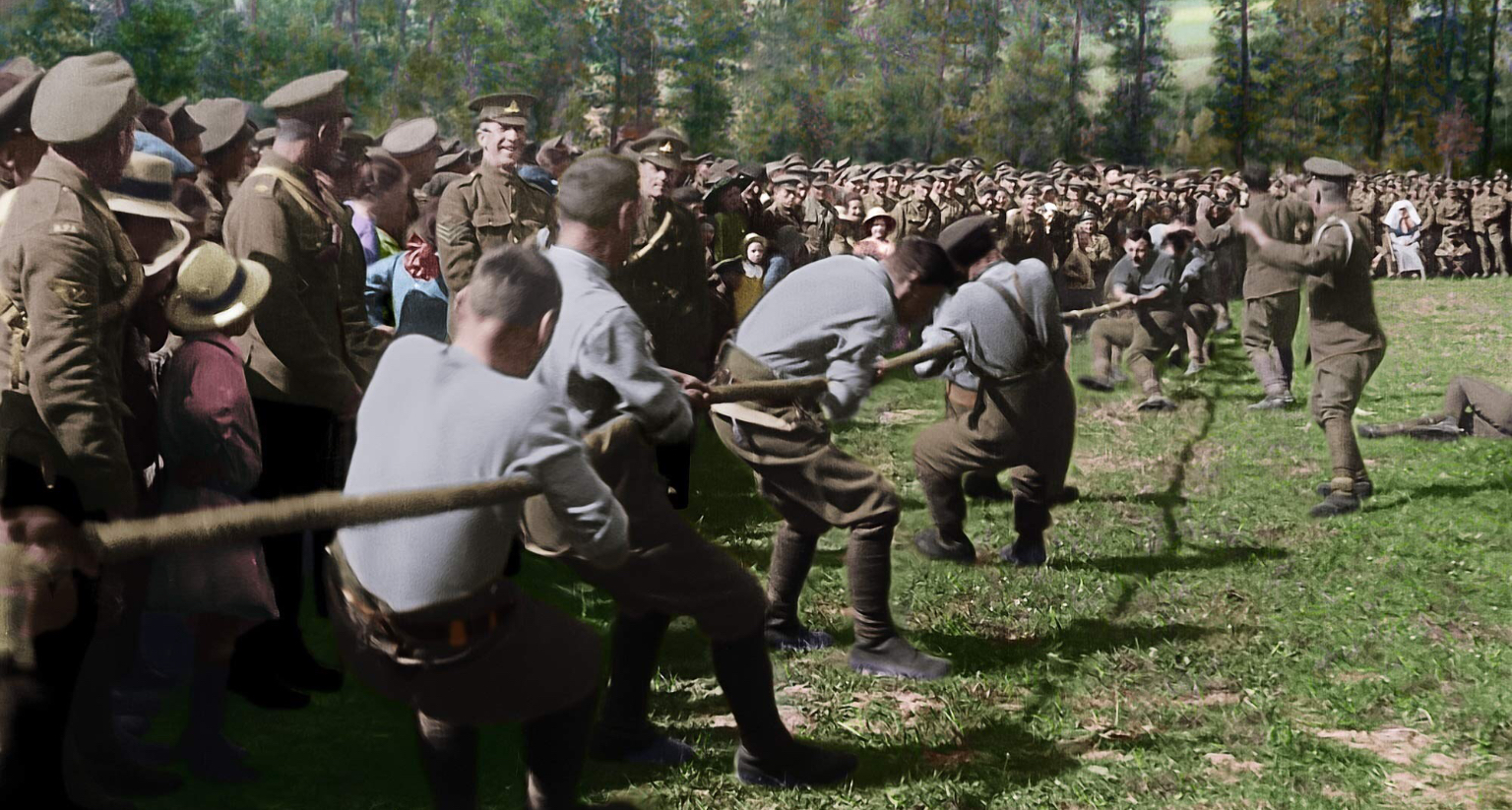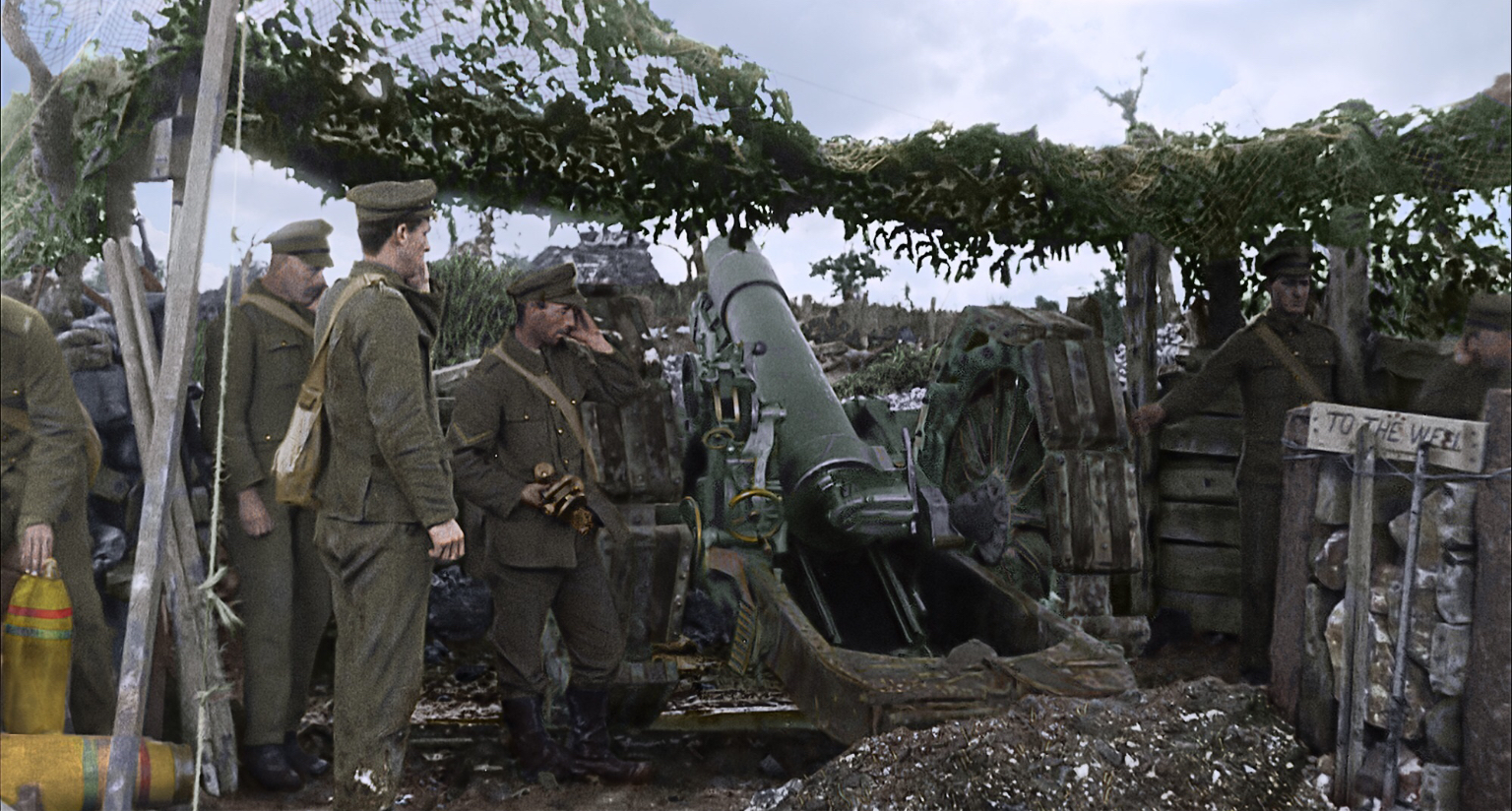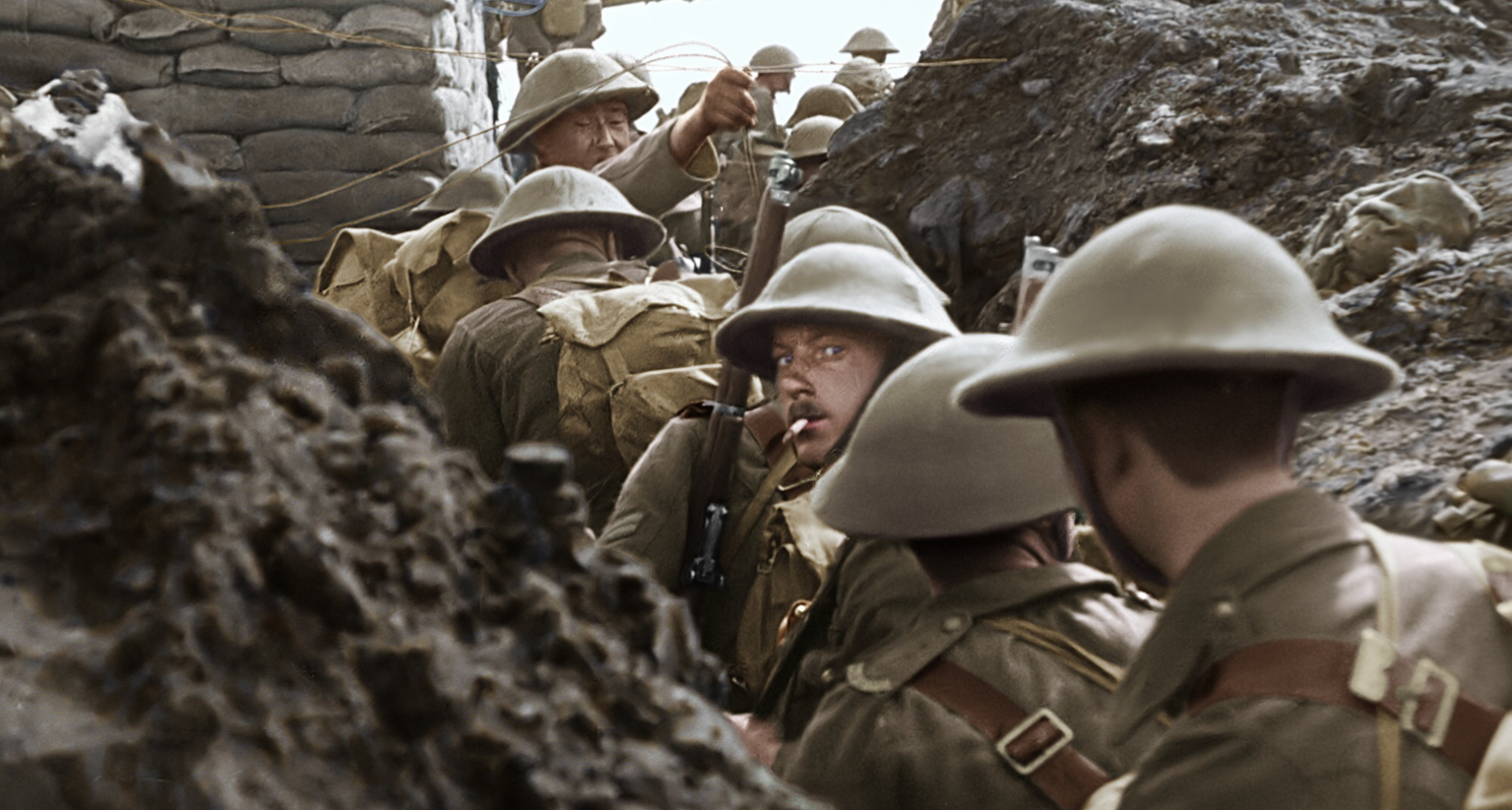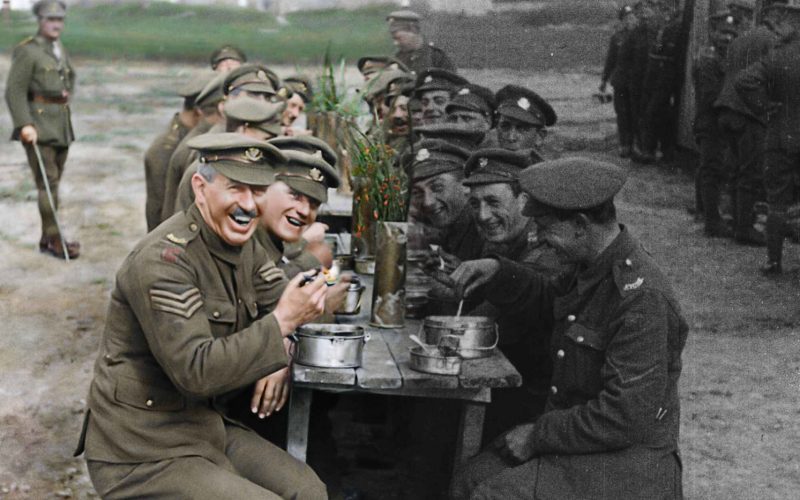They Shall Not Grow Old (2018).
It could be argued that director Peter Jackson has lost his mojo in the days since he took on the gargantuan task of adapting The Lord of the Rings Trilogy. He’s obviously an incredibly talented filmmaker and his passion for film is without question, but with the less than stellar reception of The Hobbit Trilogy, we were beginning to wonder if he would ever capture the same magic that was there in the days of his former glory that not only won him multiple Oscar’s but a legion of fans. Well, we now have the answer in his incredible World War I documentary, They Shall Not Grow Old. Whilst not being a huge fan of The Lord of the Rings movies, I no doubt knew that what Jackson was able to accomplish with those films was nothing short of miraculous.
In this latest undertaking, Jackson, a noted World War I buff himself, gathered hundreds of hours of original footage, most which had never been seen before, along with over 600 hours of interviews with soldiers of The Great War. Jackson and his team were able to clean up much of this footage and take it a step further by using a colorisation process, so we, the viewer could see the war as the soldiers might have seen it themselves. There is no narration from historians, just the voices of the many soldiers who proudly served their country a century ago. In addition to this already great achievement, Jackson was able to augment this archival footage with a 3D conversion process that is nothing short of spectacular.

The film focuses mostly on the Western Front and the many Englishmen whose lives were forever changed by this historic event. We hear stories of how many of the soldiers that were still children were encouraged to lie in order to volunteer. They speak of the struggles in boot camp as they marched for miles, awaiting their call to action. The images play as we hear the many accounts of what life as an English soldier was really like in 1914, from the inadequate uniforms to the food and training. Jackson’s film literally transports you back in time, with many scenes perfectly capturing moments of humor and the patriotism that many soldiers describe.
As the film progresses we are thrown into the trenches on the Western Front as the soldiers dig and work to establish their position on the line. Many of the soldiers seem like deer in headlights with the camera trying to capture their daily life, but even so they seem happy and playful in the early parts of the campaign before combat. We hear tales of sleeping standing up, rainy weather turning their trenches into muddy messes, and the overall camaraderie that is felt. The footage is absolutely mesmerizing, with Jackson pulling a clever trick to insert the sights and sounds of what might have been back then. He was able to hire expert lip readers to interpret much of the dialogue from this archival footage, but with the added detail of using voice actors from the towns were these soldiers most likely hailed from.

When we get closer to actual combat, Jackson yet again pulls out the stops to recreate the sounds of the artillery fire with very similar or identical cannons, some from his own collection. We see shots of explosions from the artillery both fired & fired upon, as well as land mines used by the Germans. Of course there is no actual footage of close combat due to the dangers of it, but Jackson uses actual magazines from the time that contained illustrations of what combat would have been like. All these techniques are used very effectively and I found myself in slack-jawed awe as I absorbed this incredible retelling.
The film wraps up with the surrender of the Germans and the end of the war, which I was surprised to find out, was mostly civilized. Many of the German soldiers were much like their opposing Englishmen, who answered the call to arms for their country when asked. Young and impressionable but human none the less, we see footage of both German and English soldiers laughing and entertaining one another. It’s said many times by the soldiers that the Germans were cordial and happy just like them that the war was over.

After the war many soldiers returned home to a different world, one that seemed to have no use for them anymore. Often is the story of the soldier trying to find his place in society which is usually during a post-war depression era. The shots toward the end of the film are haunting, as we see the fear on many of the young men’s faces, not knowing if this would in fact be their last day on earth. Thinking about how someone so young could all of a sudden be dead, not having experienced a full life, gives me a profound appreciation for the sacrifices made by these young men.
I can’t recommend a documentary such as this highly enough. It’s an incredibly important historical document, told with such care and respect by Jackson, who honors all who served and those fallen, with this footage which would otherwise have been lost to time were it not for this bold restorative effort. History is often the story of who we are and were we are headed as we race to the future. Stories will always be a driving force in all cultures and should be encouraged to be shared with generations to come. I applaud Jackson and his team for delivering a modern day masterpiece of cinema, one that I believe that all who perished in the Great War would be both proud of and grateful for so their sacrifice is never forgotten.
Film ’89 Verdict – 10/10
They Shall Not Grow Old is currently on limited theatrical release in the US, is available to stream in some territories and is also available to buy on Blu-Ray.

